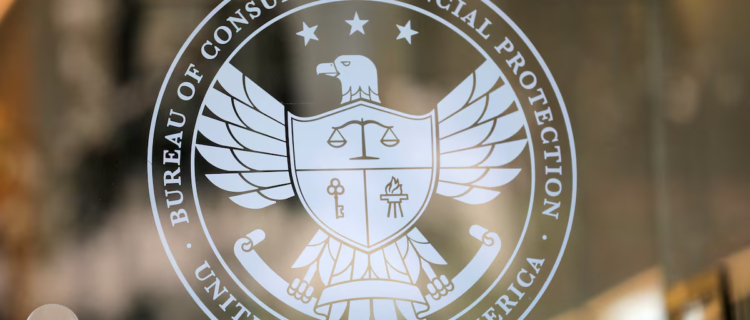
US consumer watchdog sues big banks over ‘widespread’ fraud on Zelle payment app
Published by: Reuters.com
Date: July 23, 2025
Summary
The Consumer Financial Protection Bureau (CFPB) has filed a lawsuit against several major U.S. banks, accusing them of failing to address fraudulent activities on the Zelle payment platform. The CFPB claims that these banks did not implement adequate measures to protect consumers from scams and fraudulent transactions, resulting in significant financial losses for many users.
Zelle, a popular digital payment service, is jointly owned by several leading banks. The lawsuit alleges that despite being aware of the vulnerabilities, the banks did not take sufficient action to rectify the issues. The CFPB aims to hold these institutions accountable and seeks remedies to prevent future consumer harm.

Our Take
Fort Knox, developed by Austin Capital Bank, is a high-security savings account designed to safeguard consumers life savings and protect them from sophisticated fraud and scams. Its advanced security features include biometric verification, soft and hard tokens, proprietary technologies, and a focus on creating intentional friction to prevent unauthorized access and transactions.
CLEAR® Facial Biometric Verification
Only a live facial scan can unlock the account. Even if scammers obtained credentials or tokens, they cannot emulate the user’s biometrics to log in.
Custom Security Zones with Multi‑Factor Tokens
Sending money triggers heightened authentication—such as requiring a Microsoft Authenticator or YubiKey token. Fraudsters cannot initiate transfers without these secure, device-bound tokens.
Closed‑Loop Protection™
Transfers are strictly limited to the originally verified funding source. Attempts to divert funds to a scammer’s account using Zelle-like tactics are automatically blocked by design.
Lockdown™ Status & Two‑Day Withdrawal Delay
Suspicious transactions trigger Lockdown™, freezing all transfers. Plus, all withdrawals are held for two business days, giving users time to identify and halt fraudulent activity before funds leave.
Active Account Cloak™ & Blacklist™
Fort Knox hides account numbers using alphanumeric formats and enforces a proprietary Blacklist™ of high-risk entities—preventing scammers from routing money to newly opened or suspicious accounts.
No Links/QR Codes & .Bank Domain Integrity
By avoiding transactional links and QR codes and operating solely on a secure .Bank domain, Fort Knox removes phishing pathways often used to initiate P2P scams.
Bottom Line: Fort Knox’s combined safeguards—which include biometric identity checks, multi-factor security zones, Closed‑Loop Protection™, instant lock-down responses, delayed withdrawals, cloaked account numbers, and blacklist enforcement—prevent the rapid, reversible P2P transfers that Zelle platforms have struggled to secure, effectively eliminating the vulnerabilities exploited in these fraud schemes.
Quick Breakdown
Get into the article with a quick breakdown of the main topics covered in the article in the Q&A section
Article FAQ
Fort Knox uses advanced security measures such as biometric authentication, Intelligent Closed-Loop™ Protection, and Active Account Cloak™ to safeguard against fraud.
Fort Knox offers features like biometric authentication, Intelligent Closed-Loop™ Protection, and a Lockdown™ feature to prevent unauthorized transactions.
The Lockdown™ feature halts all transactions if suspicious activity is detected, pending review and verification by the account holder, ensuring security.
The two-day pending period allows customers time to identify and cancel unauthorized transactions, providing an extra layer of security.
Fort Knox's robust security measures could mitigate risks associated with Zelle, protecting customer funds and personal information from fraud.
Protect your life savings.
Experience the world’s first high-security savings account built from the ground up to keep your money safe and secure.




